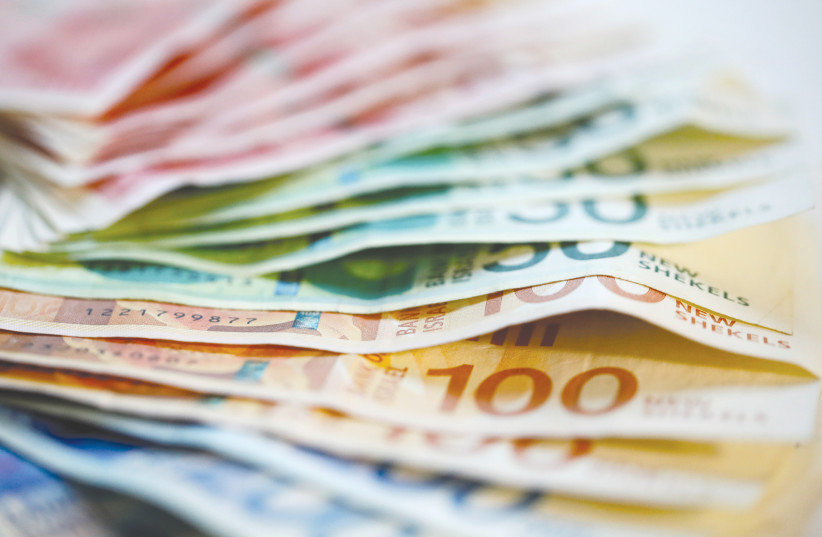In the last 12 months, the cumulative deficit grew by around 0.6 percentage points and stood at 6.2% of GDP, the Finance Ministry announced Monday.
The deficit in March was NIS 15 billion, compared to NIS 2.7 billion measured last March, the ministry said. The cumulative deficit from the beginning of the year is NIS 26 billion, compared to a cumulative surplus of NIS 14.2 billion from the same time frame last year. The budget deficit is the difference between the government’s expenses and its income or assets and occurs when a country’s spending exceeds its income.
Estimated spending for Gaza war
The ministry estimated that Israel-Hamas war spending stands at NIS 27.6 billion since the beginning of the year and NIS 52.5 billion since the outbreak of the war. These expenses do not include the Compensation Fund, the fund put in place to cover the direct and indirect expenses of the war incurred by Israelis.

The Bank of Israel, Israel’s central bank, left its interest rate at 4.5% on Monday. “Economic activity and the labor market are continuing to recover gradually,” the bank said in a statement. “Along with this, the amount of geopolitical uncertainty has increased and is reflected in the relatively high-risk premium in the market,” the statement read.
The bank also announced that inflation has become more moderate in the last 12 months and is within its target range.
During the war, the BOI’s monetary policy was “focused on stabilizing markets and reducing uncertainty alongside price stability and supporting economic activity,” said the bank.
The Bank of Israel interest rate is the center of the range between the rate at which the bank lends and the rate at which the bank borrows money from Israel’s commercial banks, and this rate impacts those that banks then offer to customers.
When the BOI interest rate increases, the prime rate also increases. Many other interest rates are determined by the rate or directly tied to it.
“The amount of uncertainty about the scope and duration of the war and its effects is very large,” the BOI said, explaining this decision to leave the rate at 4.5%. “The war has significant economic meaning both for real activity and the financial markets, and the risk premium of the market is still very high.”
